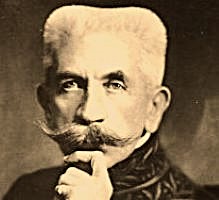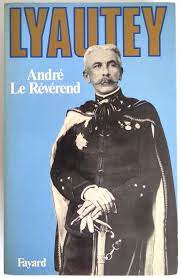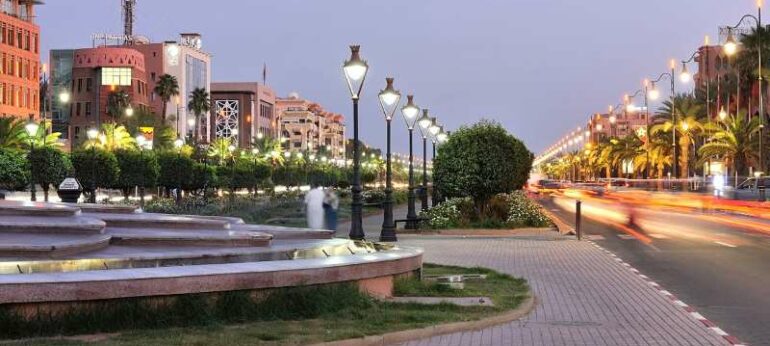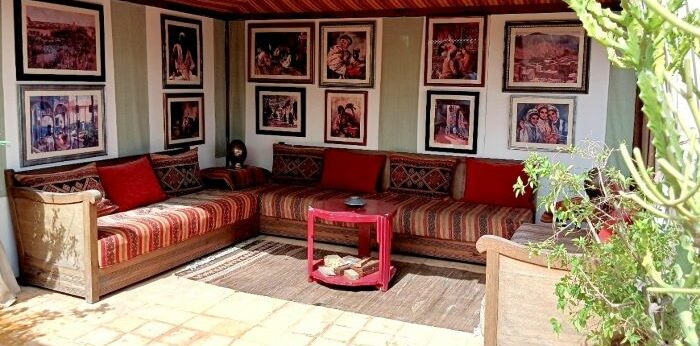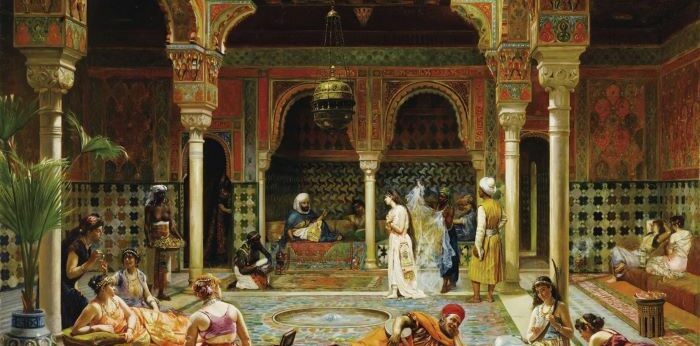The first Resident General
Evoking Marshal Lyautey here is a reference to an indelible page of the history of the Kingdom through a complex character, sometimes confusing, but whose unconditional love for this country has never weakened. His footprint is still visible today. After the signing, on 30 March 1912, of the Protectorate Treaty with Morocco, he was appointed, on 28 April, Resident General Commissioner of the French Republic in Morocco. He was the first one to hold this position, until 1925. A period of thirteen years that will mark his life, both professionally and personally.
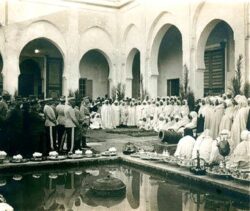
Signature of the Protectorate Treaty 1912
The agreement provides, in its first article, that “The Government of the French Republic and His Majesty the Sultan agree to establish a new regime in Morocco comprising administrative, judicial, educational, economic, financial and military reforms, that the French Government will deem useful to introduce into Moroccan territory. This regime will safeguard the religious situation, the respect and traditional prestige of the Sultan, the exercise of the Muslim religion and religious institutions…”It is not considered as a total annexation of the country, on the Algerian model, and the situation of Morocco will become therefore singular. And no one will respect the soul of a country, its culture, its particularities as much as Marshal Lyautey. “Nothing is too good for Morocco “, as he used to say.
He restores the splendor of the Cherifian monarchy, knows how to become familiar with Moroccan Islam and wins a lasting peace for the country.
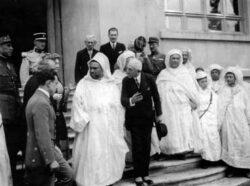
Lyautey and Sultan Moulay Youssef
A paradoxical mind
To say of Hubert Lyautey that he is a complex figure is an understatement. According to his biographers, the man is steeped in what might seem contradictions. A man of the past, but who will resolutely enroll in the future by projecting a long-term vision for the Kingdom. He will obviously contribute to the growing attraction for the Land of the setting sun.
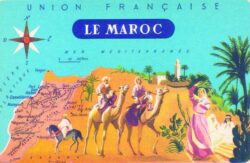
By education, he was a catholic, a conservative, but he, nevertheless, defines himself as a free-thinker. In several occasions, he will clash with the colonialist front in France, with the Catholic lobby that wants to convert the Berbers. He declares “We have complete respect for your faith, your morals, your institutions, your social and protocol places”. It is moreover by a decree (still in force today) that he forbids access to mosques for non-Muslims, out of desire to respect these places of prayer. A convinced monarchist, he will nonetheless be a great servant of the republican state.
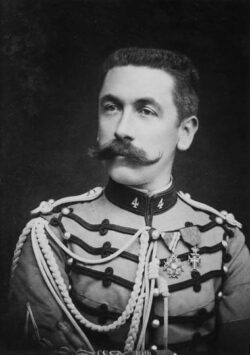
His personal journey, conventional if ever there was one, could have shaped a very different personality, less permeable to progressive, even visionary ideas.
He was born in Nancy in 1854, in a very bourgeois and aristocratic environment on his mother’s side. Among his ancestors were several generals of the French Empire. The family leaves for Dijon where young Hubert is taking his philosophy baccalaureate. It then settles in Versailles. Marked by the war of 1870 and defeat, he chose the military career. From 1873 to 1875, he was an officer cadet at the Saint-Cyr School.
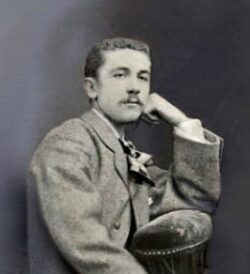
Hubert Lyautey in 1877
From his rank of Sub-Lieutenant to his promotion as Major General in 1907, his various commands abroad took him to Algeria, Italy, Indochina, and Madagascar, in addition to the positions he held in French cities. From those years, there remain “Letters“, “Notes“, “Diaries” and some other writings. He was thus elected to the French Academy in 1912 but admitted in 1920 after the end of the Great War.
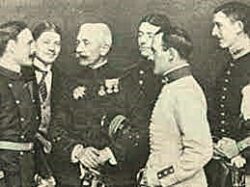
The man with a prominent mustache marries Inès de Bourgoing in 1909. She will prove to be a partner involved and active in her husband’s various choices. Even after his death, she will work in favor of the Muslims of France, will often travel to Morocco where she will found child care centers, nursing schools, orphanages, dispensaries…
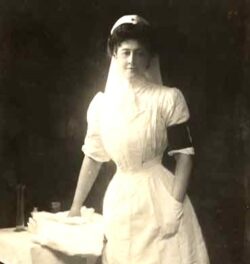
Inès de Bourgoing 1907
Lyautey arrives in Casablanca on May 13, 1912 aboard the cruiser “Jules Ferry”.
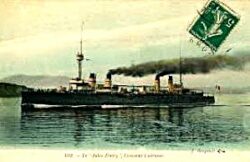
Cruiser Jules Ferry
The man of action
The Marshal is a jack-of-all-trades. His action in Morocco is established in all fields. He will create or strengthen the foundations of a modern Cherifian Kingdom. Administration, jurisdiction, economy, monarchical power, health, education, culture, religion, territory, urbanism, heritage, architecture… Everything interests him, with respect for already established traditions.
He chooses Rabat as the country’s capital in 1914.
He notably creates modern urban areas in the most important cities, Rabat, Casablanca, Marrakech, Agadir, Fès… The architect Henri Prost (1874-1959) is often his direct collaborator.
Thus, a physical separation is established between new European sectors, with rational plans, and the old and traditional medinas.
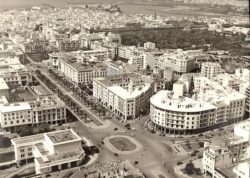
Rabat new city
Zoning is often optimized to protect the historic hearts of cities. Local populations can then live according to their ancestral ways. On the other hand, social segregation is, in fact, consecrated.
In Marrakech, the European district of Guéliz is born.
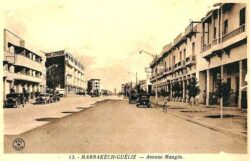
The heritage protector
In the autumn of 1912, Maurice Tranchant de Lunel (1869-1932) was appointed by Lyautey as Director of the Department of Antiquities, Fine Arts and Historical Monuments and of the Special Department of Architecture. The two men seem in perfect osmosis. Throughout Morocco, monuments and historical sites are classified, restored, enhanced. In Marrakech, this is the case for the ramparts, the streets of the medina, some palaces, the Saadian Tombs, the Koutoubia, the Ben Youssef Madrasa. In Rabat, the Hassan Tower, the Kasbah of the Oudaïas, the medina. In Fez, the medina, the madrasas, the historical universities… In each city, Lyautey appoints a person who is responsible for these operations. They are rarely civil servants but artists, architects or “men of taste“.
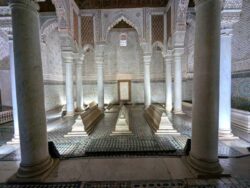
Saadian Tombs Marrakech
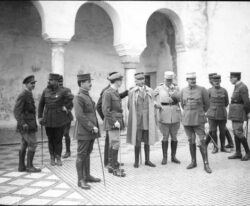
Lyautey, Xavier and Sixte de Bourbon Parme Fès Palace of the Sultan
In December 1916, Hubert Lyautey was appointed Minister of War in the Briand cabinet. It is a three-month flash since he resigned in March 1917, following numerous disagreements with the French military.
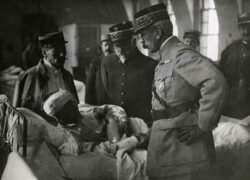
He can finally come back to his beloved Morocco and complete the missions he has set for himself !
One can affirm that the balance sheet of Marshal Lyautey in Morocco is “generally positive”. Its management was able to create favorable conditions for the development of the Kingdom, while maintaining its particularities. His image in the history of the country is still seen in a favorable light. He has been an crucial stage in the march that led to the total independence in 1956 of a pacified country. The cordial and respectful relations he maintained with the royal power were decisive.
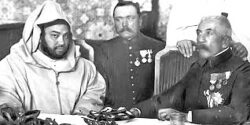
Lyautey and the Sultan Moulay Youssef
In 1921, Lyautey is elevated to the dignity of Marshal of France. Throughout his Moroccan years he established his quarters in the Bahia Palace in Marrakech or in the Residence of France inaugurated in Rabat in 1922 in the presence of the President of the French Republic Millerand.
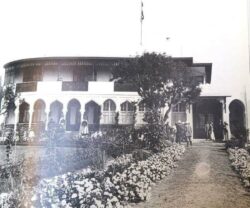
French Residence in Rabat
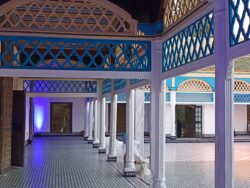
Bahia Palace Marrakech
In 1925, the rebellion in the Rif under Spanish rule, led by Abd el Krim flares up. A profound disagreement, as to the means and the strategy, opposes Marshal Lyautey and Philippe Pétain. The latter dethroned him in Morocco and, assisted by a certain Spanish colonel Franco, put an end to the war brutally.
Deprived of all his prerogatives and military powers, Lyautey resigns and returns to France permanently. Almost humiliating goodbyes: He lands in Marseille where the honors due to his rank are not returned to him. Thirteen other general residents will succeed him until 1956. Most will walk in the footsteps of Marshal Lyautey.
A solitary retreat
The Marshal now lives on his property located in Thorey (now Thorey-Lyautey) in Lorraine. His last years are somewhat filled with bitterness and nostalgia, as shown by his Moroccan living room set up in the castle.
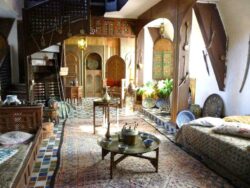
Despite some trips in France, his activities as General Commissioner of the Colonial Exhibition of 1931 (Palais Musée de la Porte Dorée, Paris 12) and Honorary President of all the French Scout federations (1928), he does not really recover from his return to France. In his home on his native lands, his memories of the Land of the Setting Sun that he cherished continue and intertwine. Some are tinged with sweetness and smiles, others with resentment.
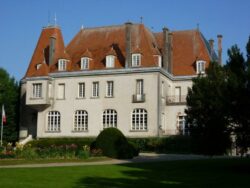
Castle in Thorey-Lyautey
In 1926, the Sultan Moulay Youssef visited him. In 1932, his son the Sultan Mohammed, who will become HM King Mohammed V after independence, also comes to honor him with his visit. He leaves him a friendly dedication: “Memory of our visit to Thorey, to our great friend Marshal Lyautey to whom Morocco will always keep an eternal gratitude for his forever famous work. August 25, 1932“.
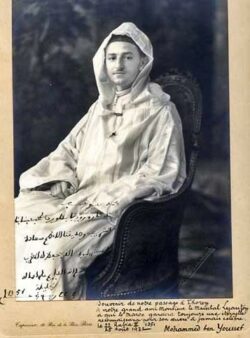
He is reluctant to write his Memoirs but publishes in 1927 “Paroles d’Action” which some perceive as a spiritual testament.
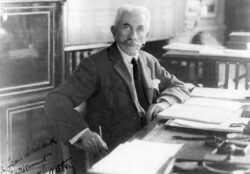
Lyautey in Thorey 1930
In the air
Hubert Lyautey, Marshal of France dies on July 27, 1934.
On August 2nd, his state funeral was held in Nancy in the presence of the President of the French Republic Albert Lebrun. His town of Thorey becomes Thorey-Lyautey. In October 1935, his burial takes place in Rabat, according to his wishes. His wife will join this mausoleum in 1953. In May 1961, his body is repatriated under the Dôme des Invalides. General De Gaulle delivers a eulogy there.
Therefore, the body of Marshal Lyautey has also been a traveler, between its beloved lands. But as De Gaulle said, “However noble the decor may be finally offered to his ashes, Lyautey’s spirit and actions cannot be buried.”
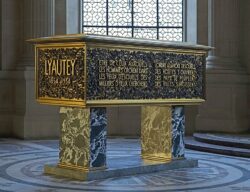
Invalides Paris
According to the biographies about this character, many adjectives convey the contradictions of this multifaceted man: authoritarian, charming, unstable, depressive, megalomaniac, worldly, snobbish, romantic, flamboyant, flirtatious, sincere, frank, charismatic, humanist, social, ambiguous, enigmatic… A lot for one man! No doubt there were many storms under this kepi of Maréchal, between convictions, doubts, truths and secrets ! But this life itinerary, this unusual destiny for an army officer still leave well-traced footprints a century later.
In the air of contemporary Morocco, a part of the soul of man Hubert Lyautey always flies…

More about Hubert Lyautey
https://lyautey.fr/fondation/
A few works by Marshal Lyautey
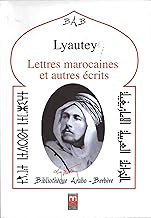
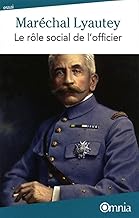

Biographies
. Lyautey “Le ciel et les sables sont grands” Arnaud Teyssier
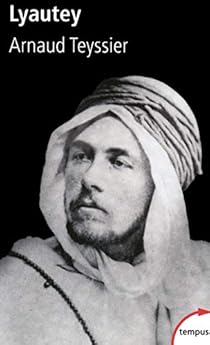
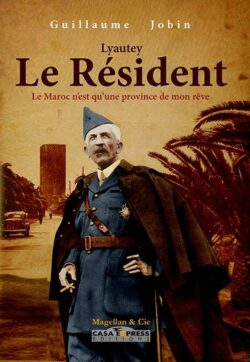
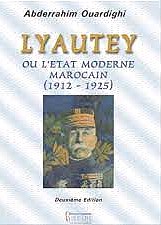
. “Lyautey” André Le Révérend
Hubert Lyautey’s quotes
“Nothing durable is based on strength” “Nothing truly great is done without a particle of love” “When heels slap at my appearance, I hear brains close”

